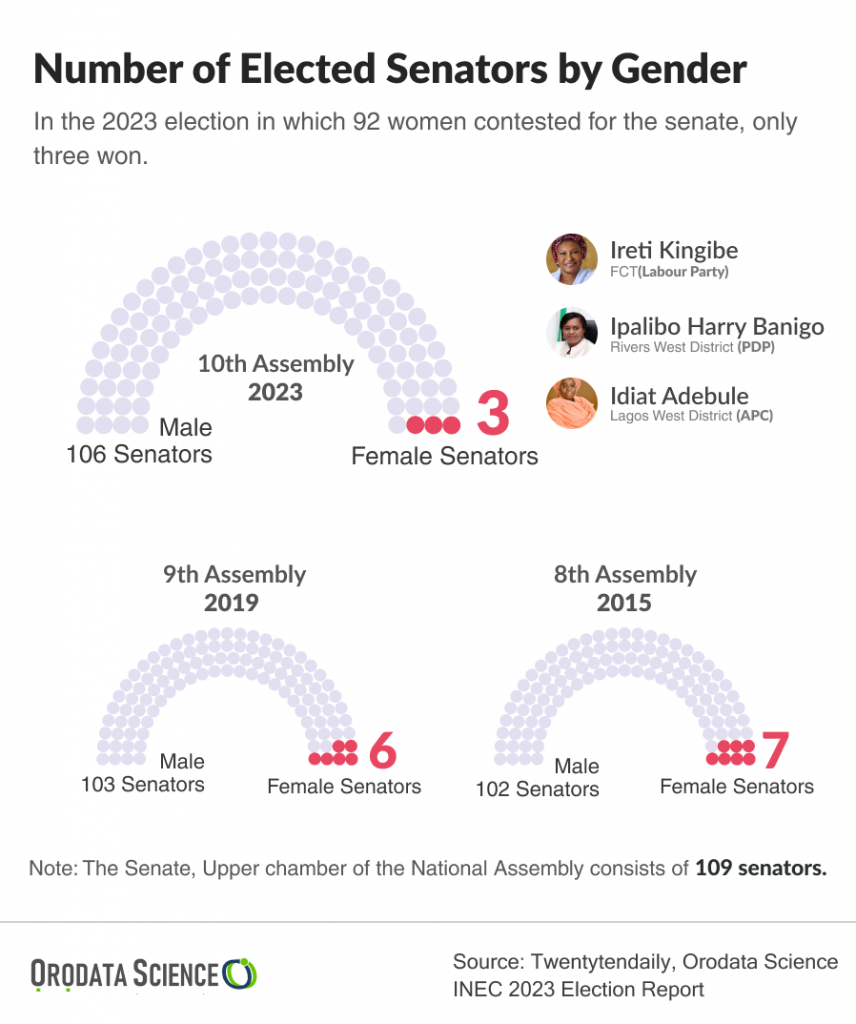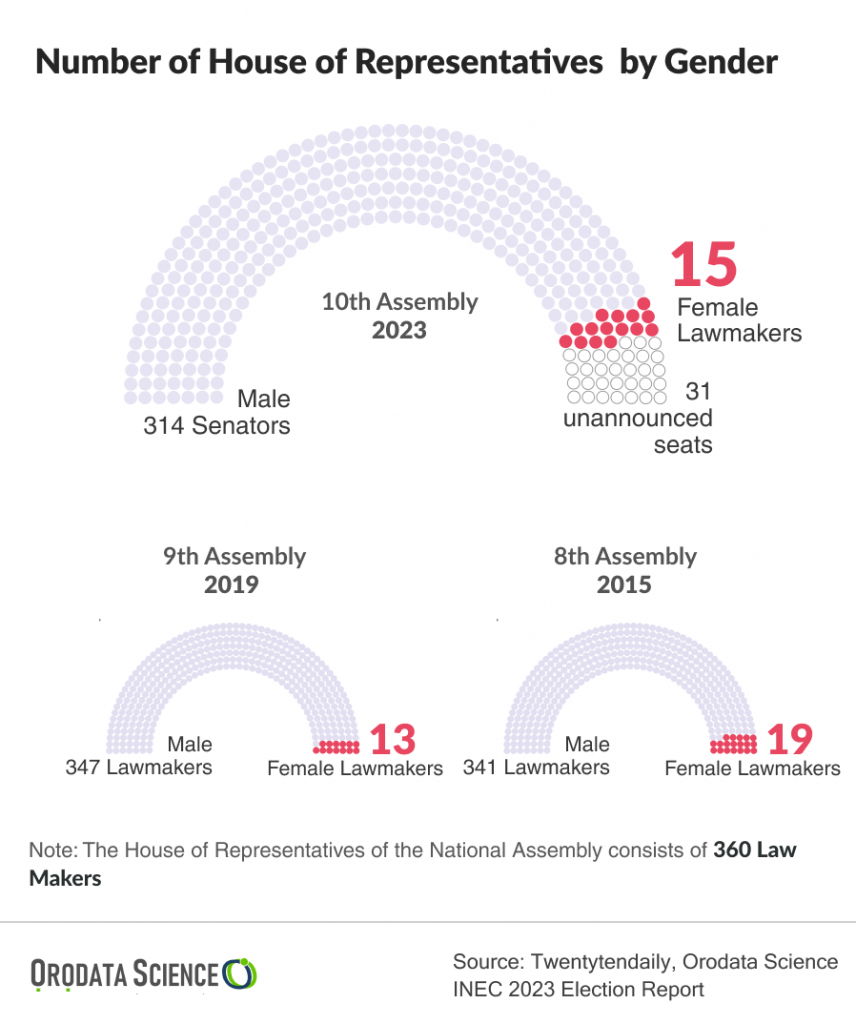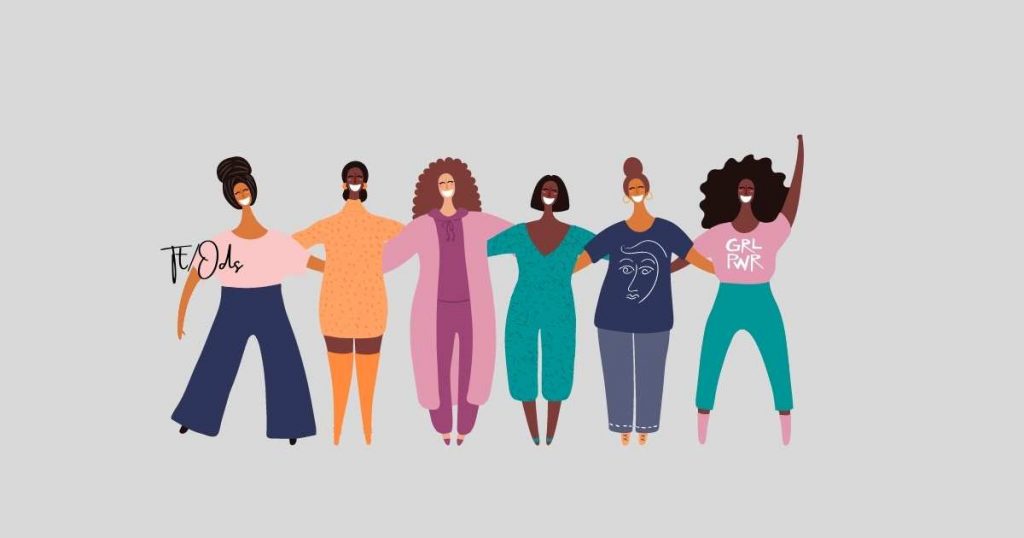The 2023 general elections have been concluded but conversion concerning its credibility and reflection of the people’s will stay on its trail. Nigerians went to the polls on 25th February to elect a President and members of the National Assembly; the same exercise was repeated three weeks after in which state governors and legislators were elected.
With about 95% of all results announced by the Independent National Electoral Commission, Ọrọdata dives into post-election data, to analyze the outcome of the election and to project the political landscape in the coming years.
The results of 329 of 360 House of Representatives Seats have been announced by the electoral umpire; while 31 seats are undecided. 107 of 109 senate seats were also announced with five seats undecided. The vacant seats will be decided in supplementary elections scheduled for April 15. The supplementary elections will take place in five senatorial districts, 31 federal and 58 state assembly constituencies; Adamawa and Kebbi will also have a rerun election on the same day.
Female Representation in the Federal Legislative Election Results
Female representation has remained low and staggering since the country transitioned to democracy in 1999, even though females constitute 49 per cent of the total population. Gender advocates and Civil Society Organisations have made concerted efforts to change the narrative through protests and policy proposals but their efforts are yet to yield much impact as females remain underrepresented in politics and governance.
Data from the election results show a sharp drop in the representation of females in the list of elected federal legislators. Only three females made it to the list of elected Senators announced by INEC; this is the lowest when compared to the last two elections. There were seven female senators in the 8th Assembly inaugurated in 2015, and six in the 9th Assembly inaugurated in 2019. In the 2023 election in which 92 women contested for the senate, only three won. The three women who have made it to the 10th senate are the Labour Party’s Ireti Kingibe from the FCT; Ipalibo Harry Banigo of the Peoples Democratic Party from Rivers West District; and Idiat Adebule representing the All Progressives Congress and Lagos West District.

For the House of Representatives, females have claimed only 15 out of the 329 seats declared by INEC. Although this is a little higher than the number of females in the 9th Assembly – 13 females. There were 19 females in the 8th House of Representatives.

Females on the sideline as jostling of principal offices begin
With the ruling APC maintaining majority seats in the National Assembly, politicians elected under the party have begun jostling for principal offices. So far, two senators from the South East have shown interest in being the next Senate President; they are Messrs Orji Kalu from Abia State and Dave Umahi from Ebonyi. Scheming for the next speakership is also in motion with Hon. Ahmed Wase from the North Central and Hon. Sada Soli from the Northwest already confirmed to be in the race.
It is however interesting that none of the elected females in both chambers have shown interest in contesting any of the principal offices. There was no female in the leadership of both chambers of the 9th Assembly.
Nigeria ranks lowest in female representation in African national parliaments. According to Statista , females have only 3.6% representation in Nigeria’s federal parliament. Rwanda and South Africa top the chart with females making up 61% and 46% of their federal parliaments respectively. Nigeria shares space with core patriarchal countries like Qatar, Iran, Vanuatu and Yemen where females constitute between 0-5% of federal parliaments.

